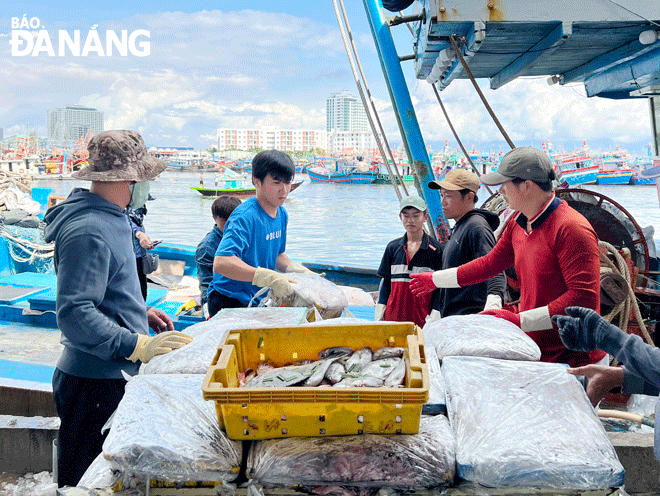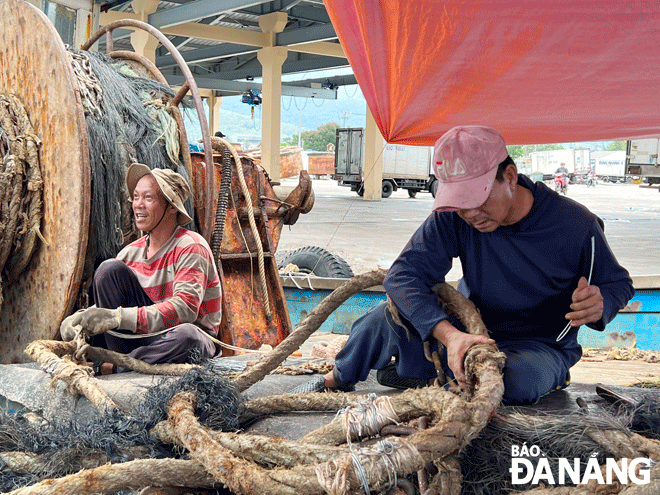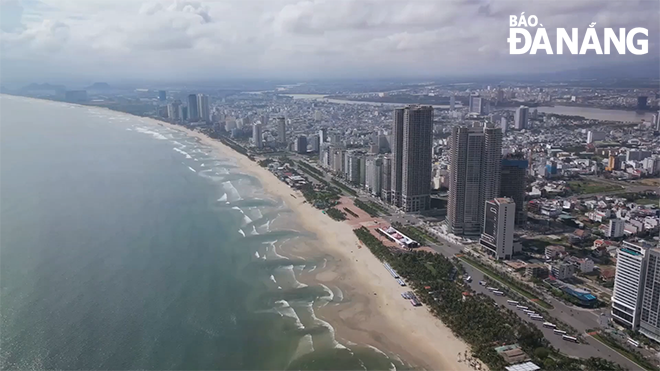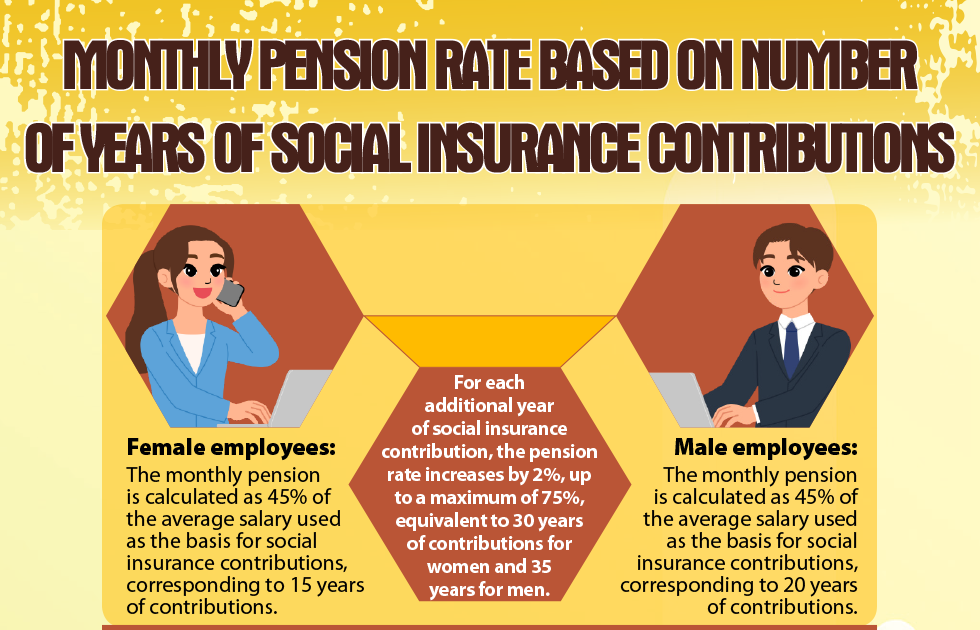Da Nang fishing industry struggle with manpower shortage
Da Nang’s fishing industry is struggling with the labour shortage for a whole lot of reasons.
 |
| Inefficient fishing activities cause difficulties for many ship owners in retaining their workers. IN THE PHOTO: Fishermen are transporting seafood to the Tho Quang Seafood Wholesale Market on the morning of July 14. Photo: VAN HOANG |
Severe labour shortage
Mr. Nguyen Van Tieng, residing in Nai Hien Dong Ward, Son Tra District, owns 3 fishing boats specialising in offshore fishing activities. Each trip requires 20 workers but Mr. Tien finds it very difficult to employ enough required number of employees. Most of his crew members are from Quang Ngai and Thua Thien Hue provinces.
According to Mr. Tieng, the profit after each trip is divided according to the ratio of 50:50, meaning that the ship owner will enjoy 50% whilst the rest will go to all crewmembers on board.
Since the beginning of the year, Mr. Tieng has conducted a total of four offshore fishing trips, most of them have broken even.
Both the ship owner and crew members have no income due to inefficient fishing trips, low output, and high prices of petrol and materials.
With that difficulty, Mr. Tieng expressed his concern that crewmembers find it very difficult to stick with the profession.
Meanwhile, fisherman Le Van Khang, residing in Thuan Phuoc Ward, Hai Chau District, said that his family has six over 800CV logistics ships with about 60 crewmembers in total. About 80% of them come from Thua Thien Hue Province, whilst the rest are local people.
Every month, Mr. Khang has to make up for a loss of VND300-400 million due to increased fuel costs and inefficient seafood exploitation activities.
Previously, each of his family's ships had about 10 workers, but now there are only about 6 workers per vessel. Compared to other ships, labourers on his ship are paid on a monthly basis. However, the salary is exchanged directly between the ship owner and labourers without a labor contract.
Mr. Cao Van Minh, Chairman of the Fisheries Union of Nai Hien Dong Ward, Son Tra District, said that ship owners had to recruit labourers from other localities due to a shortage of local labor force.
On the other hand, many offshore fishing trips are not effective, so the income of the shipmates is affected. In addition, there is no bond between the ship owner and the employees, so it is easy for them to switch jobs to another ship, leading to difficulties in finding labourers.
“The fishing profession is facing a serious labor shortage because young people are not interested in the marine profession. Most of the fishing activities are carried out by those who follow the profession for a long time. If there is no appropriate development and training strategy, we are afraid that human resources in the fishing industry will be more difficult and limited" said Mr. Minh.
 |
| Fishermen checking fishing gear and other necessities to prepare for their offshore fishing trip at the Tho Quang Fishing Wharf and Port. Photo: VAN HOANG |
City in need of a strategy for human resource development
According to the Da Nang Fisheries Sub-Department, the current number of local people working in the fishing industry only meets about 50-60% of the demand, and the rest comes from other localities.
As of July 2022, an estimate of 6,815 local labourers had worked on 1,222 fishing vessels. Of this, 325 fishing vessels with a length of less than 12m had been involved in inshore fishing activities, 320 ones with a length of 12-15m had caught seafood along coastal areas, and 577 ones with the largest length of 15m or more had conducted offshore fishing activities.
In order to develop the fishing profession, for many years, the city has been implementing many central and local governments-issued policies. Included are Decree No. 67/2014/ND-CP and Decree No. 17/2018/ND-CP regarding fisheries development policies which allows Vietnamese fishermen to access loans for building new boats, Resolution No. 255/2019/NQ-HDND dated July 11, 2019 on regulations on policies to support the development of seafood exploitation in Da Nang in the 2019 - 2025 period, marine hull insurance policy, and more.
A spokesperson for the Da Nang Fisheries Sub-Department stressed the need for the city to issue policies and mechanisms to attract students to participate in specialised training in the field of fisheries in order to develop human resources in terms of quantity and quality, especially the policy to support human resources with specialised training working directly on fishing industry.
Mr. Tran Van Linh, Chairman of the municipal Fisheries Association, acknowledged that fishing must be considered a modern industry for economic development. This industry not only requires modern production tools and means, but also needs highly trained human resources. However, the actual training of the industry is still limited as there are almost no training schools for fishing industry.
Chairman Linh put a spotlight on the need for the national government to develop a complete and comprehensive strategy to develop the fishing industry. In particular, it is necessary to place the fishing industry in line with the potential and position of the country. On the other hand, there should be an investigation to determine the development strategy, combined with the orientation of sustainable fishing, ensuring the natural ecosystem, stabilising the economic life for fishermen;
He also underlined the necessity to set out fishing quantities suitable to each region and each season to ensure the sustainability of fishing activities and preserve the natural ecosystem. Since then, there will be reasonable policies on training human resources, and promoting the application of means and techniques of exploitation and fishing effectively and in line with reality.
Reporting by VAN HOANG - Translating by M.DUNG








